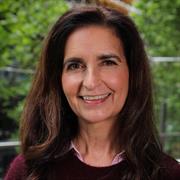
Associate Professor Nicola Willand
Details
-
Department: School of PCPM
-
Campus: City Campus Australia
-
nicola.willand@rmit.edu.au
-
ORCID: 0000-0003-0604-1906
Open to
- Masters Research or PhD student supervision
About
Dr Nicola Willand is an Associate Professor at the School of Property, Construction and Project Management, and a housing researcher who is interested in the interplay of housing, energy, health and equity.
As an architect by background, Nicola Willand approaches sustainability in the built environment holistically.
She finds that initiatives towards a more sustainable built environment tend to focus on environmental and economic outcomes, while the social aspects are often neglected.
To facilitate triple bottom line sustainability, Nicola aims to develop strategies for the built environment that will minimise environmental impacts and life cycle costs while maximising productivity, health and social equity.
Nicola's PhD explored the intersection of climate change mitigation as an opportunity for health and housing as a social determinant of health, and contributed to a better understanding of residential energy efficiency and health as a socio‐technical system. Subsequent qualitative and quantitative works have focussed on energy vulnerability, retrofit justice as the inequity of access to home energy efficiency improvements and articulating pathways of mitigation these social injustices
Nicola has also led teams who investigated how energy assistance could be integrated into the In-Home-Care system and how hidden energy poverty could be tackled through trusted intermediaries and interdisciplinary initiatives. Her British Academy Visting Fellowship explored the perceptions of essential energy in six European housing contexts. A current project uses mixed methods to understand how households balance electricity and gas use and how these practices are shaped. The ongoing 'Towards climate resilient families…' project is aims to inform place-based, gender and culture informed approaches to protecting families during heat events. Nicola is now exploring sufficiency as first principle of sustainabilty in housing.
Nicola regularly writes and talks about her research in the media and presents in public events to raise awareness of energy vulnerability in Australia and to advocate for better homes for all. Nicola is also a Trustee of the Fuel Poverty Research Network (https://www.fuelpovertyresearch.net/ ) that fosters collaborations among researchers, policy makers and practitioners on tackling energy poverty worldwide.
With regards to student education, Nicola is the course coordinator for the postgraduate 'Building Modelling and Simulation' course and the postgraduate transdisciplinary 'Housing & Health' elective. She also supervises 4th Year Construction Management students in writing their Honours thesis.
Nicola belongs to the following RMIT research groups:
Sustainable Building Innovation Laboratory (SBi Lab)
Centre for Urban Research (CUR)
Supervisor projects
- Multi-objective optimization for existing houses retrofit targeting near zero: framework and application in Victoria, Australia
- 15 Jan 2024
- Exploring energy justice in community solar energy project
- 19 Jul 2023
- Exploring the indoor air quality in dwellings in current and future climates - A case-study in inner west Melbourne
- 3 Mar 2023
- Towards an Equitable Transition to Electric Vehicles: An Analysis of Local Government Climate Policies in Victoria, Australia
- 13 Aug 2021
- Energy Justice in Australia’s Housing Decarbonisation Transition: Learning from Community Housing Retrofits
- 9 Dec 2020
- Energy Culture: Implications for Energy Retrofit Programmes in Coyhaique, Chile
- 21 Nov 2019
- The Pink Elephant in the Room: The Materiality, Networks and Conditions of Home Insulation
- 9 Oct 2019
Teaching interests
Research interests
Urban and Regional Planning, Building, Other Built Environment and Design, Public Health and Health Services, Architecture, Cultural Studies. Sufficiency in housing.


